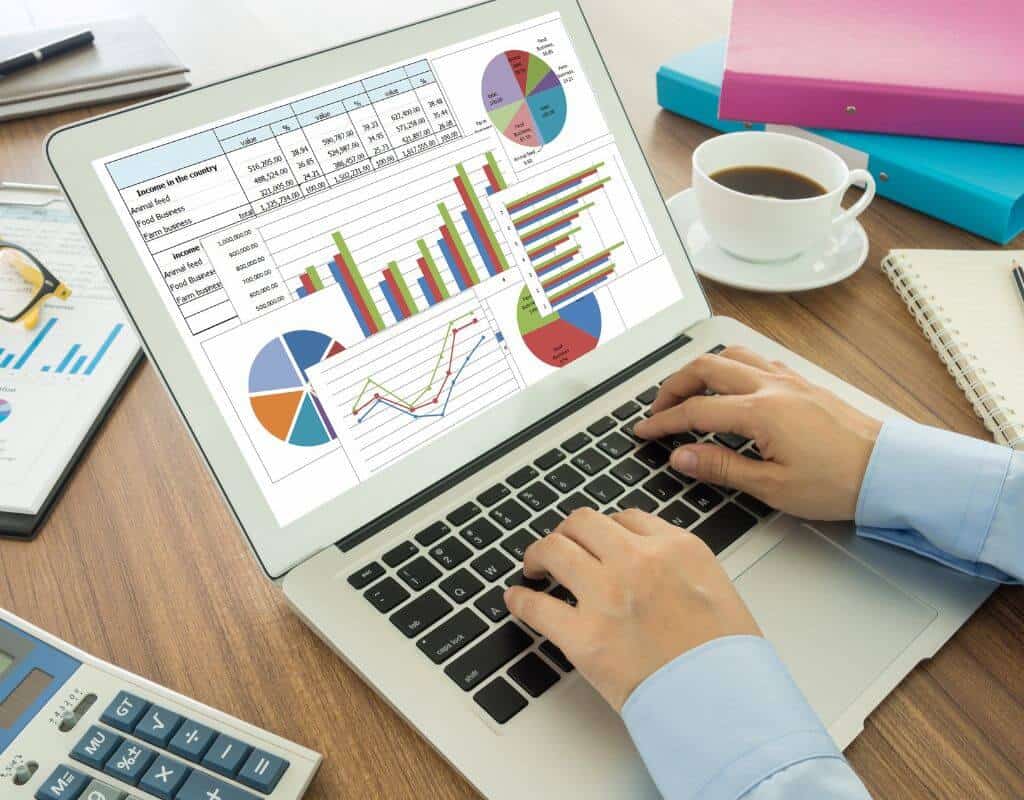Data analysis involves using statistics to interpret data. A data analyst uses that information to spot trends, uncover connections, and report the findings to stakeholders. While a lot of the job is working with facts and figures, there’s more to it than analysis.A data analyst interview can give you the inside scoop on what the company expects from you and which skills they’re looking for in you. To help you get the most out of your interview, here are eight common data analyst interview questions.
8 Data Analyst Interview Questions to Prepare For
While some of these questions may be part of a behavioral interview, they may also be asked in a separate technical interview.
1. Please explain X
In this case, X could be explaining a p-value, the difference between mean, median, and mode, or describing what regression analysis is. When the hiring manager asks you to explain a technical concept, they are trying to learn two things.
First, do you really know what X is? The above examples help form the foundations of data analysis. If you can’t explain them, that could indicate that you don’t have a good grasp on the fundamentals.
Second, the interviewer is evaluating your communication skills. Can you explain what a p-value is to someone who may not have any idea what it is or why it’s important in data analysis? Your ability to take a technical concept and make it understandable to a nontechnical audience is likely something you’ll do regularly. The interviewer is assessing just how well you can do it.
2. How would you estimate X?
Again, X could be any one of a number of things: the number of coffee houses in Seattle, the number of left shoes in India, how many robins there are in the wild … it doesn’t matter. The key concept here is how you approach analyzing a large data set.
There are two parts to answering these kinds of data analyst interview questions. First, discuss how you’d find this kind of data. Would you search publicly available data sets? Collect new data? Then you need to talk about how you would analyze it, framing your answer around the kind of data set you might have and which analysis methods would give you the best estimate.
3. How do you clean data?
Also known as “data wrangling,” cleaning data is an essential part of being a data analyst. Skipping this step could result in an invalid analysis.
While your approach will vary, explain what steps you generally take to clean data sets. How do you deal with missing and duplicate data? What do you do about outliers? How do you clean data from multiple sources?

BCG Data Science & Analytics
Experience the real tasks performed by the BCG GAMMA data science team with this free Forage job simulation.
Avg. Time: 5 to 6 hours
Skills you’ll build: Exploratory data analysis, data visualization, data cleaning, model evaluation
4. What do you do when you get unexpected results?
In many respects, asking how you deal with the unexpected is both a technical question and a behavioral interview question. The hiring manager is asking how you adapt and pivot in the face of a challenge but also asking you to discuss how you use your technical skills to overcome an obstacle.
Use the STAR method to answer these kinds of data analyst interview questions. Think about a time you encountered an unexpected result in your data analysis. How did you tackle this new challenge, and what did you learn from the experience?
5. What are the common/general steps of any data analysis project?
This data analyst interview question is probing how you go about planning and executing a data analysis project. While every project is unique, include this basic outline as you explain your approach:
- Identify the problem: What is the question the company wants answered or the problem your analysis might solve?
- Data collection: How do you collect data? Or where do you find data sources?
- Data cleaning: How do you wrangle your data after it’s collected?
- Analysis: How do you analyze the data? Do you always rely on the same tools, or does it change depending on the data set?
- Interpreting and presenting: How do you present the findings to stakeholders? What do the results mean?
>>Build practical skills: The Best Data Job Simulations on Forage to Jumpstart Your Career
6. How would you measure our company’s performance?
This is another interview question that’s part technical and part behavioral. And the interviewer is really asking two questions, so make sure you answer both parts.
First, they’re asking if you’ve researched the company. Do you know what its mission and business objectives are and how the company goes about achieving them? Are you aware of the overall market, how this company fits into it, and what competitors are up to? What does the company do well, and what are its challenges?
The second part asks how you would go about analyzing performance using data. What data would you collect? How would you collect it? What methods would you use to analyze the data? And how would you present the results — particularly if they aren’t good?
7. How do you analyze data?
At first glance, this question asks how you perform data analysis. What methods and techniques do you use? How do you apply your technical skills?
However, the answer is also probing how much (or little) knowledge you have of the different types of data analysis (descriptive, diagnostic, predictive, prescriptive) and when you should use each one. Even if you don’t have a lot of experience in one or more of these areas, talk about how you have or would conduct each kind of data analysis.
8. How do you use (Python, Excel, SQL)?
This question could end with any one of a number of technical tools. The interviewer is trying to determine if you have experience with a specific tool and how you use it in your data analysis. And it’s a pretty safe bet that whatever tool or tools the interviewer asks about are the tools you use in the role.
But if you don’t have direct experience with whatever they’re asking about, look to your transferable skills to help answer the questions. For example, if the interviewer asks about your Python skills but you’re stronger with SQL, talk about how both are programming languages and that while the syntax isn’t the same, you understand the basics behind how Python works.

Technical Interview Prep
Get prepped and ready for your technical interview in this free course from Girls Who Code.
Avg. Time: 5-6 hours
Skills you’ll build: Whiteboard challenge, array, matrix, hash table, data science
How to Prepare for the Data Analyst Interview
While brushing up on your technical skills and practicing the answers to common interview questions is crucial, you can take a few additional steps to ensure you stand out from other applicants.
Know the Problems
Do some research to understand what data issues the company could be trying to solve. You may not be able to get specifics, but you can often get an idea of why the company is hiring a data analyst.
Check social media, the company’s website, and search for news articles for background information. Then consider the industry to hypothesize about the data questions the company wants answered. For example, an ed-tech company may want to analyze how many students successfully complete a program or how many teachers use a specific feature. A marketing company might want help analyzing the results of their A/B tests.
Make It About the Business
Most, if not all of, your answers should relate to the company. In addition to assessing your data analysis abilities and interpersonal skills, the interviewer is also measuring your business sense.
>>MORE: Analytical Skills Interview Questions (and Answers)
Analyzing data and presenting the findings is only half of the job. Successful data analysts often explain how their conclusions impact the business (positively or negatively). They then make business-specific recommendations based on the analysis.
Talk It Out
Some data analyst interview questions will be very technical. You may be given a small data set and asked to do a quick analysis to answer a question or find a trend.
As you work through the problem, talk the interviewer through your thought process. Why are you solving it this way and not that? Why are you looking at this row of data in relation to that row of data? This helps the interviewer understand how you approach things and how you’ll perform on the job.
Know There’s No One Right Answer
Finally, remember that even though you’re working with data and numbers, there’s no one right answer for most of these questions.
Many of them are designed to help the interviewer understand how you think about and approach data analysis, whether that’s reviewing a large data set or collecting bizarre data. What’s your process from start to finish, and does it fit into how the company approaches data analysts?
Also, realize that some companies ask technical data analysis questions that are unsolvable. That’s not meant to trip you up. It’s another way to assess how you approach seemingly impossible situations.
Get ready for more interview questions:
- 10 Common Project Manager Interview Questions
- How to Prep for a Case Study Interview
- 10 Common Interview Questions for Product Managers
- 15 Entry-Level Interview Questions
- 20 Common Data Science Interview Questions
- 10 Common Leadership Interview Questions and Answers
- 15 Accounting Interview Questions and Answers
- Entry-Level DevOps Interview Questions (With Answers)
Image credit: Canva

